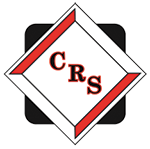Sustaining clinical data is crucially important in the healthcare sector. Doing so enables doctors, hospitals, and scientists to make decisions that enhance patient care services. Clinical Data Management Solutions is vital in the management and tracking of treatments phases and their respective monitoring, to ensure patients get the best possible outcome.
The data information systems required to be set up enable not only the identification of errors, delays, and inefficiencies but also help in striving for improvement that, when done and perfected, helps enable efficiency and efficacy that is positive for patients.
In this blog, we are going to analyze what is the importance of clinical data management, how does it improve outcomes of patients, and how do hospitals benefit from the employment of remote data abstractors and core measures abstraction services.
What Is Clinical Data Management?
Clinical data management is the process used in conducting the collection, organization ordering, and analyzing different items of patient data. They include medical history, treatment, pathology, and test results, to mention but a few.
When effectively managed, primary hospitals, in more cases than not, come up with better outcomes.
The Importance of Clinical Data Management
- Keeps track of patients’ records so they are correct and current
- Enables doctors to offer better treatments
- Facilitates proper functioning of hospitals and minimizes mistakes
- Aids in scholarly work and progress in medicine
- Makes sure laws and regulations pertaining to healthcare are met.
How Clinical Data Management Enhances Patient Care & Outcomes
Right Diagnosis and Treatment
Effective data management will enable doctors to retrieve patients’ data and records almost instantly. This allows for proper diagnosis and the necessary treatment plan to be developed. Data Management Solutions assures the doctors that they have the information needed to offer quality vital services on time.
Doctors are often faced with patients displaying a myriad of symptoms and need to make decisions quickly. Well-organized and detailed records enable doctors to check past conditions, check medication history, and avoid prescribing treatments that can have adverse interactions. The absence of structured data puts one at the risk of ordering unnecessary tests, missing critical information, or even diagnosis errors.
Mitigating Mistakes in Medicine
Medical errors can stem from improper maintenance of medical records, which in turn can pose a risk to one’s health. With adequate core measures abstraction, hospitals are able to monitor salient indicators of effectiveness and improve the quality of care provided to patients.
For instance, a hospital may lack a system for documenting allergies or past surgeries. A patient may receive inappropriate medication and even be placed at risk for a surgical procedure. These risks can be reduced through well-defined structured clinical data management information systems, which enhances patient safety and decreases complications.
Enhanced Efficiency in Decision Making
Complete and accurate databases enable hospitals to examine patient information effortlessly and efficiently. The result is improved efficiency, as decision-making is accelerated, and doctors are able to respond to medical emergencies much more effectively.
In critical situations, such as heart attacks or strokes, every second counts. Medical teams must be able to access real-time data so that they can determine what intervention is necessary and provide it right away. Medical staff must have timely access to these records because lives depend on them.
Improved Patient Follow-Up
Chronic patients, among others, benefit from routinely monitoring their progress through regularly collected data.
Monitoring chronic illnesses (hypertension, diabetes, heart disease) is key to ensuring the patient’s well-being. Healthcare practitioners manage the patient’s data so that they can observe the treatment progress and make the relevant changes, if necessary. Moreover, remote monitoring devices optimize this process since doctors can monitor the patient’s health without needing them to visit the hospital physically.
Following Healthcare Procedures and Protocols
Healthcare facilities have to follow a set of procedures for patients to feel safe with their services. With the help of remote data abstractors, patient information can be consolidated and managed for reporting, which is key to maintaining compliance.
Remote data anonymizers have the primary duty of establishing the legal compliance of these healthcare facilities. These institutions have to provide accounts of meeting specific criteria and, at the same time, avoid being sanctioned for failing to meet such criteria. Maintaining accurate records and data is helpful to the facilities as it helps maintain legal compliance while improving the facility’s reputation.
The Function of Remote Data Anonymizers In Data Management
Who is a remote data anonymizer?
Remote data anonymizers are professionals who specialize in collecting and editing medical and other relevant data from different locations. These specialists enable hospitals to manage patient records effectively without requiring additional staffing on-site.
Remote data abstraction is the way to go for hospitals that do not have the human resources to employ a full-time data specialist. They enable the healthcare institutions to collect the required data within the stipulated timelines and, as such, reduce the workload for doctors and nurses.
Advantages Of Using Remote Data Abstractors
- Lowers the burden of work for the hospital staff
- Provides data collection accuracy
- Time and cost-efficient
- Assists with compliance issues.
- Increases efficiency of the hospital
Most hospitals are facing staffing shortage issues, and dealing with data manually can be very cumbersome. Remote data abstractors offer an elegant solution by ensuring that records are updated without requiring doctors’ primary attention – patient care.
Core Measures Abstraction: Why Is It Important
What Is Core Measures Abstraction?
Core measures abstraction is one of the steps of successful healthcare data analytics, specifically focusing on data collection, interpretation, and evaluation of defined metrics. These metrics determine values measurement for the quality of care hospitals deliver to their patients.
Benefits Of Abstraction In The Healthcare System
- Assists hospitals in refining their treatment procedures
- Cut down readmission rates.
- Guarantee attainment of national healthcare goals on behalf of hospitals
- Contribute towards the development of legislative measures and policies.
Clinical Data Management Challenges And Solutions
Inaccurate Data
Implement a Clinical Data Management System with Verification and Validation methods to audit information for accuracy.
Overworked Medical Employees
Solution: Hire freelance data abstractors to lessen the workload of in-house staff.
Compliance Issues
Solution: Adhere to existing procedures while using data tracking software to meet legal standards.
Security Concern
Solution: Utilize robust cybersecurity measures to safeguard sensitive patient information.
Data security training is necessary for staff, including safeguarding the patient’s identity with strong passwords and encryption.
How Hospitals Can Better Manage Clinical Data
- Employ Automated Data Collection Tools: Reduce manual interventions, thus speeding up the data entry processes.
- Conduct Staff Data Management Training: Guarantees accuracy and appropriate handling of patient files.
- Outsource to Specialists: Remote data abstractors can assist in data handling.
- Track Performance Indicators: Aids in monitoring the performance of the hospital and determining its weaknesses.
- Conduct Scheduled Audits: Assures that the recorded information is up-to-date and meets the mandatory requirements.
Conclusion
Improving the outcomes for patients requires hospitals to practice Effective Clinical Data Management Solutions. Treating patients with quality data management reduces errors and enhances compliance with data regulations.
Healthcare providers can maintain effective patient care without sacrificing efficiency. The development of a robust data management framework can improve operational efficiency and data accuracy for your hospital.


